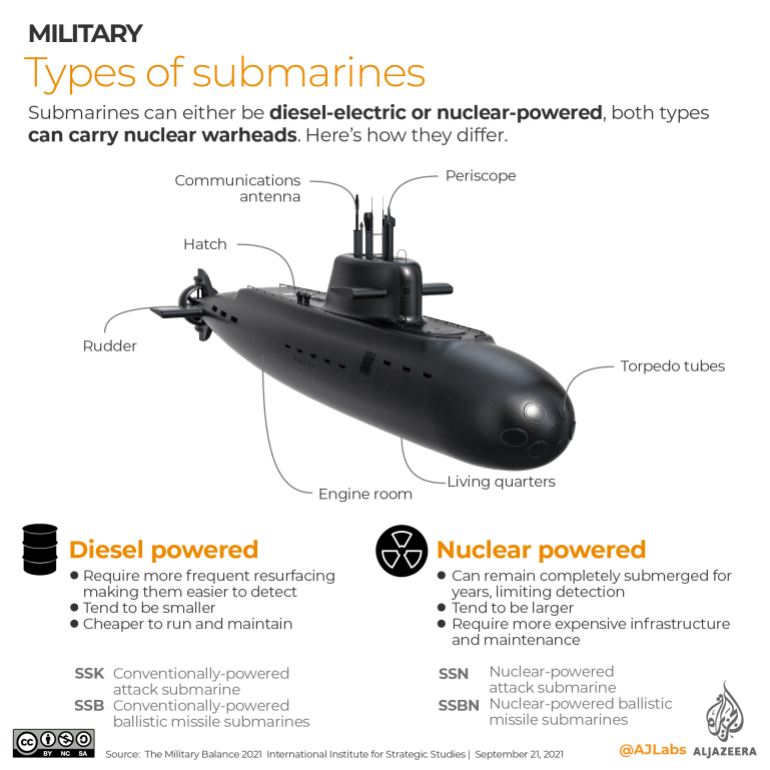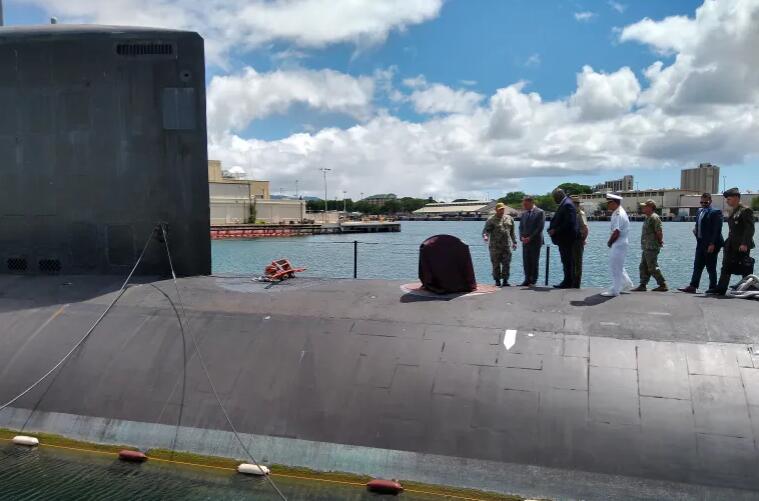Australian Prime Minister Anthony Albanese will travel to Washington, DC to meet with US President Joe Biden, where an announcement on Australia’s plans to build nuclear-powered submarines is expected.
Albanese, who was scheduled to arrive in India on Wednesday, gave few details of his forthcoming trip to the United States, saying there would be announcements later regarding arrangements for the visit.
“I’ll be meeting with President Biden in the United States. We’ll have further announcements about details soon about the arrangements that will be taking place,” Albanese told reporters at Perth Airport before boarding his plane to India.
“I’ll look forward to the continuing engagement that I have with the US administration,” he said.
The Sydney Morning Herald reported on Tuesday that Albanese was expected to sign a long-awaited pact to build a fleet of nuclear submarines during his visit to the US next week.

Albanese is expected to attend a signing ceremony on Monday in San Diego with Biden and the United Kingdom’s Prime Minister Rishi Sunak, the newspaper reported, citing sources.
The submarine agreement is taking place under the auspices of AUKUS, a fledgling alliance including Australia, the UK and the US that aims to share advanced military and other technology. But major questions still hang over the project, such as whether Australia will look to buy US or UK submarine technology, where their subs will be built and when they will be in the water and operational.
Sources referenced by the Sydney Morning Herald said that some legislators in the US believe some of the Australian submarines could be built in the US “in order to accelerate their deployment into the Pacific”.
Albanese would not say on Wednesday if he expected Sunak to also travel to the US.
The deal, which is believed to involve eight nuclear-powered submarines, comes amid concern in Australia and the US about China’s increasingly assertive presence in the Pacific region. Albanese said last month that the AUKUS alliance was “the single biggest leap” in defence capability in Australia’s history.
“The AUKUS partnership seeks to provide a conventionally armed, nuclear-powered submarine capability to Australia at the earliest possible date,” a Pentagon spokesperson told the AFP news agency ahead of Albanese’s announcement.
China condemned the AUKUS alliance as an “extremely irresponsible” threat to regional stability and in 2021 accused Canberra, Washington and London of “severely damaging regional peace and stability, intensifying an arms race, and damaging international nuclear non-proliferation efforts”.
Stephen Dziedzic, a reporter covering the Asia-Pacific region for the Australian Broadcasting Corporation, said there were reports that Australia was setting up briefing calls with senior officials and regional leaders, including Singapore and Indonesia, as an AUKUS announcement was expected amid Albanese’s announced “bilateral meetings” in the US.
John Blaxland, a professor at the Strategic and Defence Studies Centre at the Australian National University, said that Australia’s foreign minister Penny Wong and defence minister Richard Marles “have been actively seeking to allay concerns over nuclear non-proliferation” among neighbours in the South Pacific and Southeast Asia.
“The Albanese government has been stressing that a strengthened defence capability is a net plus for security partners in Southeast Asia and the Pacific,” Blaxland wrote in The Conversation on Monday.
Arriving in India on Wednesday, Albanese is scheduled to visit Ahmedabad, Mumbai and New Delhi, where he will meet with Prime Minister Narendra Modi.
“Australia and India are important partners,” Albanese said. “We share common values. We are both vibrant democracies. We have an interest in improving our economic relations.”
He said India, along with Indonesia, would grow to be the third- and fourth-largest economies in the world, which presented “an incredible opportunity” for Australia.

